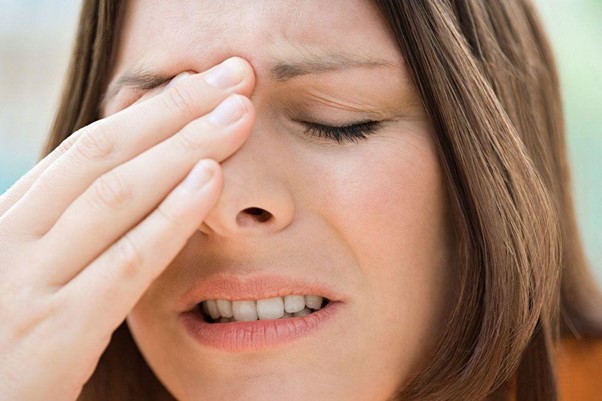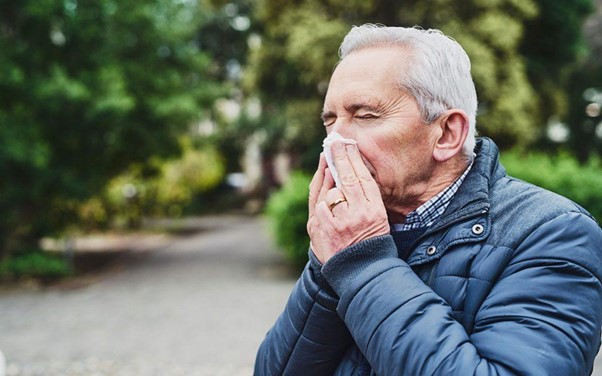
Coping with Sinus Issues: Tips for Preventing Sinus Infections
Sinus infections, also known as sinusitis, are a common health issue that affects people of all ages. They can cause pain, pressure, congestion, and other unpleasant symptoms including difficulty breathing.
Sinus issues can be caused by allergies, colds, or irritants like cigarette smoke or dust. Knowing how to prevent sinus infections is key to avoiding these unpleasant symptoms.
Causes and Symptoms of Sinus Issues
Allergies
Allergic reactions to pollen, animal dander, or mold can cause sinus issues.
When your body comes in contact with allergens, it triggers an immune response that can cause mucus to build up in your sinuses, leading to swelling, irritation, and a runny or stuffy nose.
Allergy testing can help you identify specific triggers so you can take steps to avoid them or treat the symptoms.
You may need to take antihistamines or decongestants to reduce inflammation and relieve sinus pain.
Infections
Sinus infections are often caused by viruses, bacteria, or fungi. Symptoms can include facial pain or pressure, fever, nasal congestion, and a headache.
Depending on the type of infection, you may need antibiotics or other medication to clear up the infection.
Deviated Septum
A deviated septum is a structural issue in which the bone and cartilage that divides your nose into two nostrils are off-center or crooked.
This can cause chronic sinus infections or make breathing more difficult, especially when you have a cold or allergies.
Nasal Polyps
Nasal polyps are non-cancerous growths that can develop in your sinuses or your nasal passages. They can cause persistent nasal congestion, runny nose, postnasal drip, or a decreased sense of smell.
Depending on the size and location of the polyps, your doctor may recommend a course of medication or surgery to remove them.
Environmental Factors
Environmental factors like air pollution, cigarette smoke, or dry air can irritate the lining of your sinuses and contribute to chronic sinusitis.

Avoiding smoking and exposure to pollutants can help reduce your risk of developing sinus issues. Using a humidifier to add moisture to the air can also help relieve sinus issues caused by dry air.
Diagnosing Sinus Issues
If you experience any of the above symptoms for more than a week or if they become worse with time, it is important to seek medical advice from your doctor.
Your doctor may request an X-ray or CT scan to help diagnose the cause of your sinus issues.
Treatments for Sinus Issues
The treatment for sinus will depend on the underlying cause.
Treatment options may include medication to reduce inflammation and relieve symptoms, humidifiers or steam inhalation to thin mucus, nasal irrigation with salt water, or surgery in more serious cases.
Tips for Preventing Sinus Infections
There are some simple steps you can take to prevent sinus infections and reduce the risk of developing sinus issues. These include:
Wash your hands regularly
One of the most important things you can do to prevent a sinus infection is to wash your hands regularly. Sinus infections are often caused by bacteria and viruses that are easily spread from person to person.
Washing your hands with soap and water can help to kill these germs and prevent them from spreading.
Avoid allergens
If you have allergies, it is important to avoid allergens that can trigger a sinus infection. These allergens can include pollen, dust, animal dander, and certain foods.
If you are not sure what is causing your allergies, you should speak to an allergist.
Stay hydrated
Drinking plenty of water and other fluids can help to keep your sinuses hydrated and prevent them from becoming dry. Dry sinuses are more prone to infection, so it is important to stay hydrated.
Use a humidifier
If the air in your home is dry, it can cause your sinuses to become dry and irritated. Using a humidifier can help to add moisture to the air and prevent your sinuses from becoming dry.
Avoid smoking
Smoking can irritate your sinuses and make them more prone to infection. If you are a smoker, you should consider quitting. If you are exposed to secondhand smoke, you should try to avoid it as much as possible.
Take allergy medication
If you have allergies, taking allergy medication can help to reduce your symptoms and prevent a sinus infection. Antihistamines, decongestants, and nasal corticosteroids are all effective in preventing sinus infections.
Avoid crowded places
If you are in a crowded place, there is a higher chance of coming into contact with someone who is sick. This increases your risk of getting a sinus infection, so it is best to avoid crowded places as much as possible.
Keep your sinuses clean
Keeping your sinuses clean can help to prevent a sinus infection. You can do this by using a saline nasal rinse or a neti pot. These devices can help to flush out any bacteria or viruses that may be present in your sinuses.
Eat a healthy diet
Eating a healthy diet can help to boost your immune system and prevent infections. Make sure your diet includes plenty of fruits and vegetables, lean protein, and whole grains.

Get plenty of rest
Getting plenty of rest is essential for maintaining a healthy immune system. If you are not getting enough sleep, your immune system may not be functioning at its best, which can increase your risk of getting a sinus infection.
Conclusion
Sinus issues can cause uncomfortable symptoms, but knowing how to prevent them is key to avoiding these unpleasant effects. By following the above tips, you can help to reduce your risk of developing sinus infections.
However, if you experience any of the above symptoms for more than a week or they become worse with time, it is important to seek medical help from your doctor.
With the right treatment and prevention, you can help manage your sinus issues and prevent further discomfort.
Learn more.